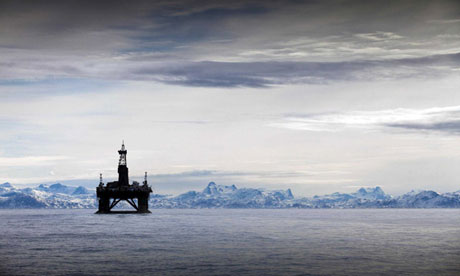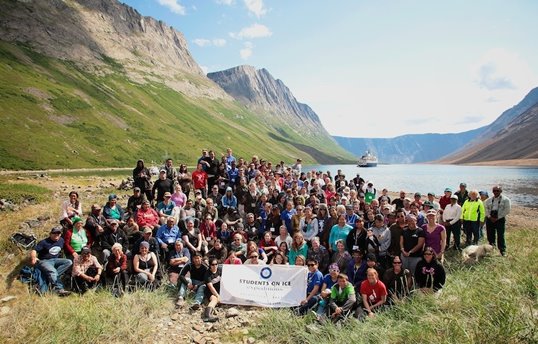
Over the next several decades, permanent ice sheets in the Arctic will experience significant deterioration due to rising temperatures across the globe. Several new studies claim that by 2050, there will be zero summer ice in the Arctic. The dramatic change in environmental conditions has sparked a debate on a variety of issues. Two of these issues —environmental degradation and economic development— have received widespread attention in Canada and around the world. They are inextricably linked, and this connection is one of the major causes for concern.
Though sustainable economic development of Arctic resources is possible, resource extraction could have detrimental effects on the Arctic environment. As of yet, it is unclear how countries will react to the bounty of resources—fishing, gas, oil, minerals— that may become available as ice melts. The vast potential wealth represents a significant disincentive for governments to attempt to slow or reverse the Arctic ice melt. Governments must ensure that the concepts of responsible environmental stewardship and economic development do not become mutually exclusive. The effects of an unsustainable approach to Arctic development could be catastrophic.
Environmental change in the Arctic amounts to a severe risk to an entire ecosystem. Countless species have adapted to the extreme climate conditions of the Arctic and the rapidly changing environment there threatens their survival. A marked increase in human interference in previously isolated habitats could endanger these species.
Furthermore, continued melting will not only deprive these species of their terrestrial habitats, but also migration and spawning patterns of birds as well as fish will be forced to change. Though many will move north to warmer waters, those adapted to cooler waters will have nowhere to go. In addition to losing their own habitats, the impact of these displaced species will affect other non-arctic ecosystems in almost inevitably negative ways.

Similarly, the melting of the Arctic ice sheet will have damaging consequences for wider global climate issues. In fact, it may speed the warming process. The polar ice cap usually acts as a reflector and a cooling factor that negates some of the warming effects of the sun’s rays. Reducing or eliminating that cap may exacerbate the general warming trend. Changing ocean currents as well as weather patterns also affect areas far from the Arctic. Rising sea levels threaten to displace millions of citizens in countries such as Maldives or living in cities such as Miami or Calcutta—locations particularly susceptible to changes in water level. Arctic nations will be those most immediately affected by the changing environmental conditions in the Arctic, but its impacts reach far beyond the Arctic Circle.
Meanwhile, resource development depends on sufficient melting of the polar ice cap in order to render extraction economically viable. The possible resources in the Far North are immense and would provide significant economic benefits to nations with access to them with. It is a stated aim, especially of the Canadian government, to use economic development in the Arctic as a means of ensuring greater prosperity for all Canadians.
The sheer scope of the possible resources would aid in this endeavour. The United States Geological Survey recently estimated that just under a quarter of the world’s remaining hydrocarbons reserves were locked under Arctic ice. As previously mentioned, the range of many marine species will increase as water warms, leading to an expansion of fishing zones. Large mineral deposits have already been discovered in the Canadian north and mining companies have responded to new possibilities there— with the new Baffinland Iron Mine under construction. Shipping lanes previously covered by ice, including the Northwest Passage, are now becoming more viable.
The exploitation of each of these potentially lucrative resources is made complicated by the persistent ambiguity surrounding not only sovereignty in the region, but also the extent of each country’s Exclusive Economic Zone (EEZ), as mandated by the United Nations Convention on the Law of the Sea (UNCLOS). Determining the extent of continental shelf extending away from sovereign territory, mapping the ocean floor and investing in high tech radar and imaging have all become exercises in sovereignty. The current lack of clarity concerning jurisdiction and extraction rights raises the likelihood of the development of unsustainable practices, illegal activity or industry-related accidents like oil spills.
The exploitation of the possible wealth of the Arctic could lead to continued environmental degradation in the region. Sustainable development, however, is both possible and desirable. It will be up to governments and citizens around the world, but especially in Arctic nations, to determine rules and regulations to ensure a sustainable approach to resource extraction.




